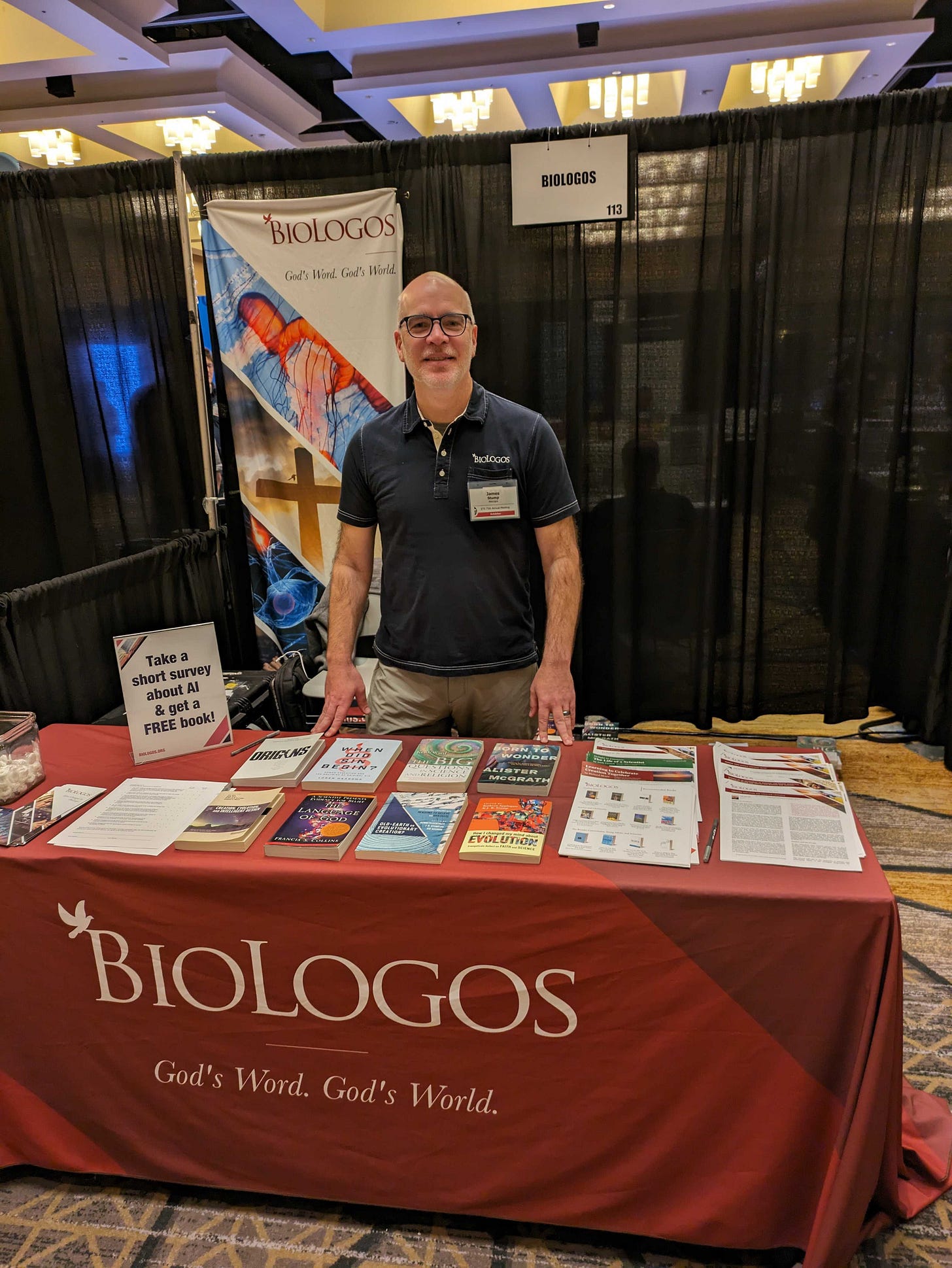I’m now deep in the heart of Texas: cowboy hats, barbecue, evangelicals. My sample might be a little skewed: I’m at the Evangelical Theological Society annual meeting in San Antonio. My organization, BioLogos, has a booth in the exhibition hall at the meeting each year. It’s a very interesting experience.
I shouldn’t talk about it like I’m some kind of outsider to this community, coming in like an anthropologist to study a strange people group. I was a member of the sister organization, the Evangelical Philosophical Society for about 10 years, and was even on the leadership team in charge of setting up the annual program that meets concurrently with ETS.
But evangelicalism has changed over the last decade, or perhaps I have changed over the last decade, or more likely: we’ve both changed over the past decade. The way the culture wars have lined up, the majority of evangelicals have adopted a version of faith that appears to be much more aligned with certain political values than it is with the Sermon on the Mount. I’ve become a Mennonite.
To be fair, the kind of people I encounter at my booth at ETS are not wearing MAGA hats or carrying guns (sadly, that’s not the case for some I’ve encountered on the riverwalk in San Antonio). These are pretty serious scholarly types here. Some like to argue with me (in mostly good-natured tones) about the theological implications of accepting evolution. Others come up to me and say in hushed tones, “I’m really glad for what you’re doing at BioLogos, but I’d get in trouble at my school if I promoted your stuff.”
One person told me that her school (in Texas) proudly announces to prospective students and families that it is “anti-science”. Most evangelicals wouldn’t say they’re anti-science, but they just don’t agree with whatever those scientists say about the age of the earth and evolution. In a way analogous to the Christian Rock music of my youth, an alternative Christian science has developed that at least superficially looks like regular science, but they’ve changed the words to fit with their preconceived notions of what the Bible must be saying about science (I actually wrote an article once about this comparison between Christian music and Christian science: Evangelical Parallel Universes).
So, the ETS conference is a kind of mission field for us. Evangelicals take the Bible very seriously, and we’re trying to show that you can continue to take the Bible very seriously and also take the careful study of the natural world seriously too: God’s Word, God’s World. These shouldn’t ultimately disagree, right?
Maybe tomorrow I’ll write about the artificial intelligence survey I’m asking people to fill out. It’s time to find some good barbecue.




Welcome to Texas. We are about 1 1/2 hours north of SA. Your reception there is definitely more positive than you might get in the local churches, as the ones who say they would get into trouble if they promoted Biologos are not wrong for the most part.